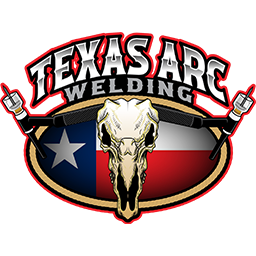The welding industry in Texas is experiencing unprecedented growth, with the state leading the nation in energy infrastructure, construction, and manufacturing projects. Whether you're considering a career change or just starting your professional journey, becoming a certified welder in Texas offers excellent job security, competitive wages, and diverse opportunities across multiple industries.
Texas's booming economy creates exceptional demand for skilled welders. The state's massive oil and gas industry, expanding renewable energy sector, and continuous infrastructure development mean welders enjoy some of the highest employment rates and wages in the country. According to the Bureau of Labor Statistics, welders in Texas earn an average of $47,000 annually, with experienced professionals earning $65,000 or more.
The Texas workforce development initiatives also provide additional support for welding professionals, including apprenticeship programs and continuing education opportunities that can accelerate your career growth.
While a high school diploma isn't always mandatory, most employers and training programs require it. If you haven't completed high school, consider earning your GED through Texas Education Agency programs. Strong math and science skills will serve you well in welding, particularly geometry and metallurgy concepts.
Professional training is crucial for developing the skills employers demand. Look for programs that offer:
[Consider exploring our welding programs at Texas Arc Welding Academy to see how we prepare students for successful careers.]
Professional welders must be proficient in several welding techniques:
MIG (Metal Inert Gas) Welding: The most common industrial welding process, essential for automotive, construction, and manufacturing work. MIG welding offers speed and versatility, making it highly valued by employers.
TIG (Tungsten Inert Gas) Welding: Precision welding for aerospace, medical devices, and high-end fabrication. TIG welding commands higher wages due to the skill level required.
Stick Welding (SMAW): Perfect for outdoor construction and repair work. Stick welding remains essential for pipeline, structural, and maintenance welding.
Flux-Core Welding: Ideal for heavy construction and shipbuilding. This process works well in windy conditions where gas shielding is challenging.
Texas welders can pursue several valuable certifications:
AWS (American Welding Society) Certifications: The industry gold standard, AWS certifications demonstrate your competency to employers nationwide. Popular certifications include:
API (American Petroleum Institute) Certifications: Essential for oil and gas industry work, particularly valuable in Texas's energy sector.
ASME Certifications: Required for pressure vessel and boiler work, opening doors to power plant and industrial opportunities.
The American Welding Society provides detailed information about certification requirements and testing locations throughout Texas.
Entry-level welders typically start in manufacturing, construction, or fabrication shops. Focus on:
Texas's extensive pipeline network requires specialized welders for installation, maintenance, and repair. Pipeline welders often travel but earn premium wages, sometimes exceeding $80,000 annually.
Commercial diving and underwater welding combine adventure with high pay. Experienced underwater welders in Texas can earn $100,000+ annually, though this specialty requires additional diving certifications.
Texas's growing aerospace industry, including companies like SpaceX and Boeing, needs precision welders for aircraft and spacecraft manufacturing.
The constant construction in major Texas cities creates steady demand for structural welders working on buildings, bridges, and infrastructure projects.
The Texas welding job market remains robust across multiple sectors:
Benefits often include health insurance, retirement plans, and overtime opportunities. Union positions typically offer higher wages and comprehensive benefits packages.
Successful welders invest in ongoing education to advance their careers:
Welding Inspection: Certified Welding Inspectors earn significantly more than production welders and work in less physically demanding roles.
Welding Education: Teaching welding can provide stable income and the satisfaction of training the next generation of welders.
Fabrication Management: Experienced welders often advance to supervisory roles overseeing welding operations and teams.
Entrepreneurship: Many skilled welders start their own fabrication or repair businesses, potentially earning six-figure incomes.
[Learn about our advanced welding courses and continuing education options to accelerate your career growth.]
Welding safety cannot be overlooked. Professional welders must understand:
The Occupational Safety and Health Administration (OSHA) provides comprehensive welding safety guidelines that every professional welder should study.
Ready to begin your welding career in Texas? Here's your action plan:
[Schedule a tour of Texas Arc Welding Academy to see our state-of-the-art facilities and discuss your career goals with our experienced advisors.]
Becoming a certified welder in Texas offers an excellent pathway to a stable, well-paying career with room for growth and specialization. The state's diverse industrial base ensures welding opportunities across multiple sectors, from traditional oil and gas to emerging renewable energy projects.
Success in welding requires dedication to learning proper techniques, maintaining high safety standards, and continuously developing your skills. With the right training and commitment, you can build a rewarding career that offers both financial security and the satisfaction of creating and building with your hands.
The welding industry in Texas continues expanding, creating opportunities for motivated individuals ready to master this essential trade. Start your journey today by exploring quality training programs and taking the first step toward your new career.
